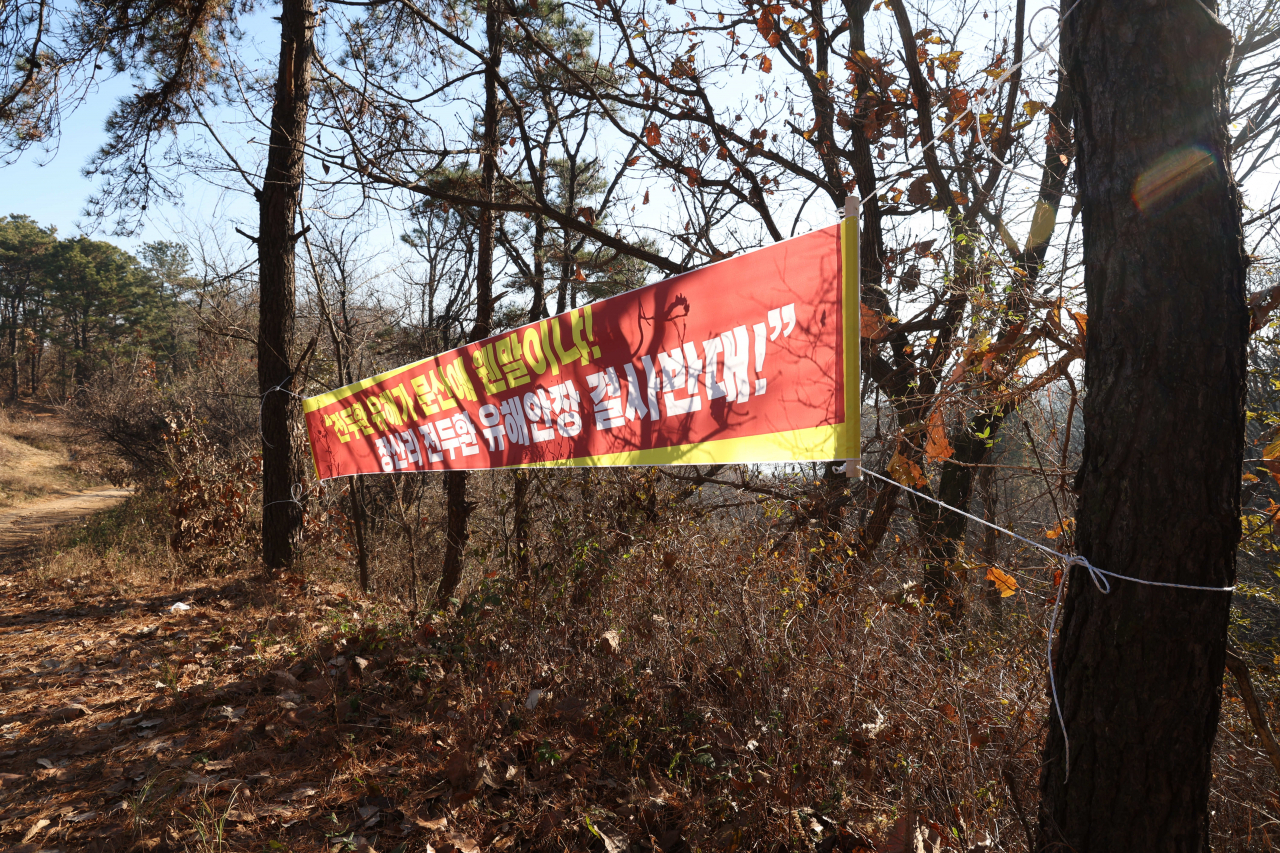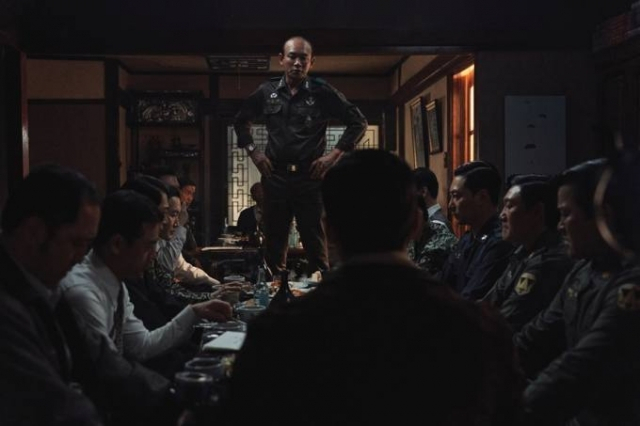'Dictator out': Paju residents reject ex-president's remains
By Yoon Min-sikPublished : Nov. 30, 2023 - 10:51

A coalition of civic groups in Paju, northern Gyeonggi Province, said Thursday that they oppose plans to bury the remains of Chun Doo-hwan, a former president who rose to power through a military coup, in the city.
The family of the former military strongman is seeking to bury Chun's remains in Jangsan-ri, in accordance with his last wishes to be buried in a place with a view of North Korea.
"Residents of Paju have been fiercely proud of the new era of reconciliation between South and North Koreas, overcoming the past 70 years of separation," a total of 11 civic societies and the regional committee of the minor opposition Progressive Party said in a statement released prior to a joint press conference to be held later in the day.
Jangsan-ri looks down on the North Korean territory of Gaeseong and Imjin River and "holds a special meaning for Paju people as the symbol of inter-Korean reconciliation," it said.
"We cannot allow Chun, who's associated with the words like 'military coup,' 'Gwangju massacre,' 'military dictatorship,' 'oppression of people,' and 'inter-Korean feud' to be buried in such a place."
Chun, formerly a two-star Army general, gained leadership of the country after the 1979 military coup. The assassination of former South Korean President Park Chung-hee -- another military dictator -- in October of that year left a power vacuum in the country's leadership, which Chun and his military faction called "Hana Hoe" took advantage of.
The former president is also heavily criticized for his oppression of pro-democracy movements and ordering the bloody crackdown on the Gwangju Democratization Movement in 1980. The military involvement in Gwangju, some 270 kilometers south of Seoul, left at least 193 people dead according to the joint government investigation in 1995.
Chun, who died on Nov. 23, 2021, at the age of 90, was sentenced to death in 1995 on treason and extensive charges of corruption. His sentence was later commuted to life in prison and ultimately pardoned two years later.
The strongman’s rise to power is depicted in the film "12.12: The Day," which has remained at the top of the South Korean box office since its Nov. 22 opening. The film, loosely based on real-life events, features Hwang Jung-min as the character based on Chun, and Jung Woo-sung as a righteous general who attempted to stop the coup, based on Gen. Jang Tae-wan.




















![[Today’s K-pop] Treasure to publish magazine for debut anniversary](http://res.heraldm.com/phpwas/restmb_idxmake.php?idx=642&simg=/content/image/2024/07/26/20240726050551_0.jpg&u=)